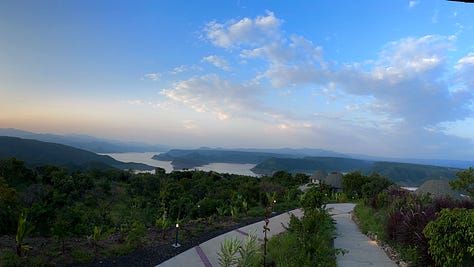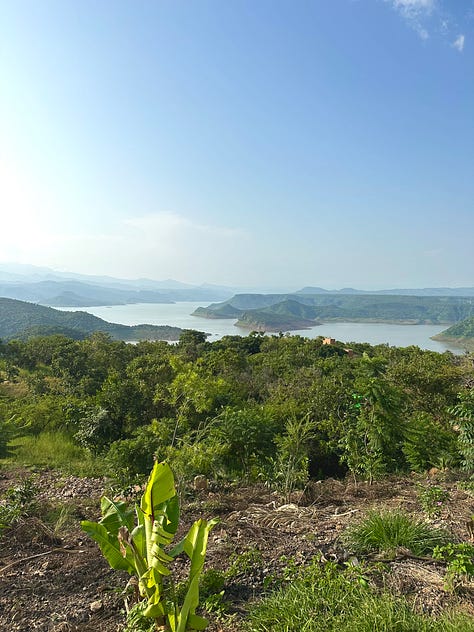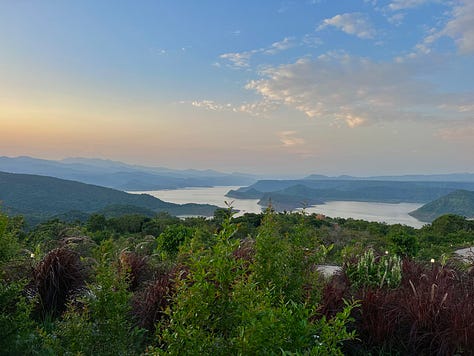Hi,
Welcome to Sifter – a weekly newsletter that brings you five updates on what’s happening in Ethiopia. Well, top 5 according to me, so there is a bit of discretionary power there. If you are going through this and think something is being overlooked – maybe more social issues, or more development-related updates – hit reply and let me know. I’ll write back.
Thank you to everyone who took part in last week’s poll, I’ve taken notes.
Now, to the news.
Finance: circling back to ‘who’s paying for the parks?’
The issue of who’s paying for some of the most expensive public projects in the country was brought up again by parliamentarians last week Tuesday. Ethiopia’s finance minister, Ahmed Shide, was in parliament answering questions at what Addis Fortune reported as a ‘spirited budget hearing’. Responding to questions from parliamentarians, the minister said these projects are “creating cleaner environments” and that this is a “fundamental human necessity, not a luxury” according to the story.
Here’s an excerpt:
“Deputy Speaker of the House, Lomi Bedo, offered a recourse to assuage the concerns raised. She asserted that any parliamentarian who questions the legitimacy of a project can request an audit.”
This statement was tested two days later when Prime Minister Abiy Ahmed was present. With regard to questions raised on funding for these projects, the Prime Minister responded by saying that money never really changed hands in some of these projects.
For instance, he said Unity Park was financed by the government of UAE, which oversaw the entire process, including the selection of contractors up until the completion of the project.
So, if you want an audit, go ahead and audit Sheikh Mohamed bin Zayed himself, he said.
To which parliamentarians broke out in laughter.
If you’re going to be a stickler for that audit though, the Prime Minister has offered to buy flight tickets for you to go and have a sit down with his donors. Again, his (exact) words, not mine.
The full story on Addis Fortune here and the full parliamentary session with the Prime Minister (in Amharic) here.
Church: is late better than never?
The Ethiopian Orthodox Tewahedo Church has finally issued an apology to the Orthodox Tewahedo Church in Tigray (formally known as the See of Selama Kessate Beharan Archdiocese).
The Orthodox Church in Tigray severed ties with the Ethiopian Orthodox Tewahedo Church in May of 2021 accusing the latter of endorsing a war of genocide.
Initially, the Ethiopian Orthodox Tewahedo Church wasn’t having this decision, saying that they do not give recognition to the new structure but it now looks like they’ve come around and issued an apology.
Here’s an excerpt from a story on Addis Standard:
“However, the apology did not mention the main bone of contention raised by the Tigray region religious leaders that members of the Synod had played active roles in fueling the war in the region.”
Read more on the controversies of the past few months here on previous editions of Sifter and go here for the full story o Addis Standard.
Trade: who gets to levy taxes?
The federal government has ordered regional states to intervene and ‘dismantle illegal checkpoints’ which are collecting tax on khat. What’s khat? ‘A leaf chewed as a mild stimulant’, according to a story by The Reporter. In the U.S. khat is classified under Schedule 1, along with heroin and cannabis. More importantly, though, it is the fourth largest export item for Ethiopia bringing in hundreds of millions of dollars annually.
These checkpoints where traders are getting taxed as they move the product across the country have affected the export trade over the last four months. Khat farmers are getting less money and the product gets too expensive to be competitive by the time it reaches its destination outside Ethiopia.
The Ministry of Trade and Regional Integration says 40 million U.S. dollars have been lost because of this. On the last edition of Sifter, I wrote an update about export trade earnings dipping by nearly a billion dollars.
Additionally, Kenya has recently emerged as a new competitor, and is selling khat at a lower price.
The full story on The Reporter here.
Halala Kella: great view, bad service
This update is a little different from the others in that it’s not news per se, but a short review of one of the projects spearheaded by the Prime Minister. One of the projects supported by the Dine for Nation fundraising campaign opened its door in May: the Halala Kella Resort in Dawro Zone, in South West Region.
The resort was built in an incredible location – the pictures below are the views from around the hotel. The rooms are spacious and beautiful, but I fear this is where the accolades stop.
Unfortunately, we faced serious water issues – not hot water issues – running water issues. And by issues, I mean, we had no water. It took many back and forths before we finally asked for a different room with a consistent water supply.
We had other issues come up too but the real problem was that our concerns were met with a very laid-back attitude. As many of you are already aware, the service industry has a long way to go in Ethiopia and while that’s something tolerable to a certain extent, you tend to be less forgiving when being asked to pay luxury-resort-level prices for it.
It’s been two months since the lodge has started giving service so perhaps this will be something that time will fix.
On the other hand, a government project wrapping up within such a short time is a feat in itself.



Events: fans of Zerubabbel get ready
If you’re in Addis this weekend, and looking for something to do, Zerubabbel Molla will be playing at the Hyatt Regency on Friday. Get your tickets, and come say hi.
That’s all for this week. I’ll be back next week with more updates!
In the meantime, you can help support my work by forwarding this email to friends and family who might benefit from keeping up with what’s going on.
Note: I go through all the major news outlets, newspapers, online publications, and will at times, include reports, notes on parliamentary sessions, and go through fact-checking websites as well. I try to provide links to both English and Amharic sources, and I usually time-stamp the video I link to unless I think the whole video is relevant.



